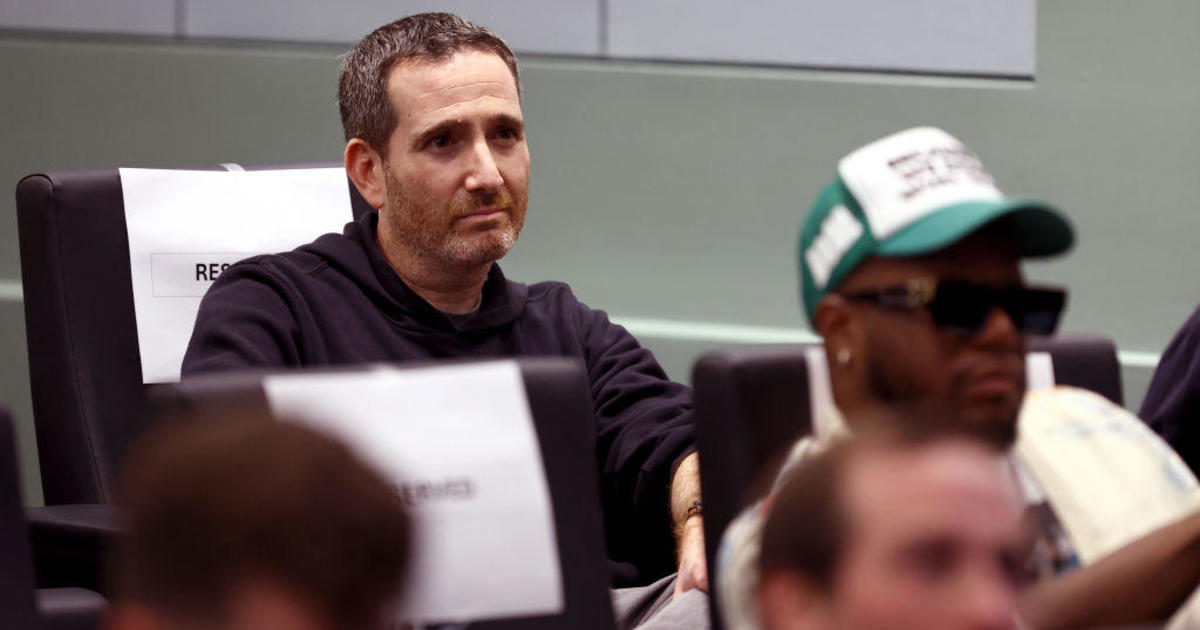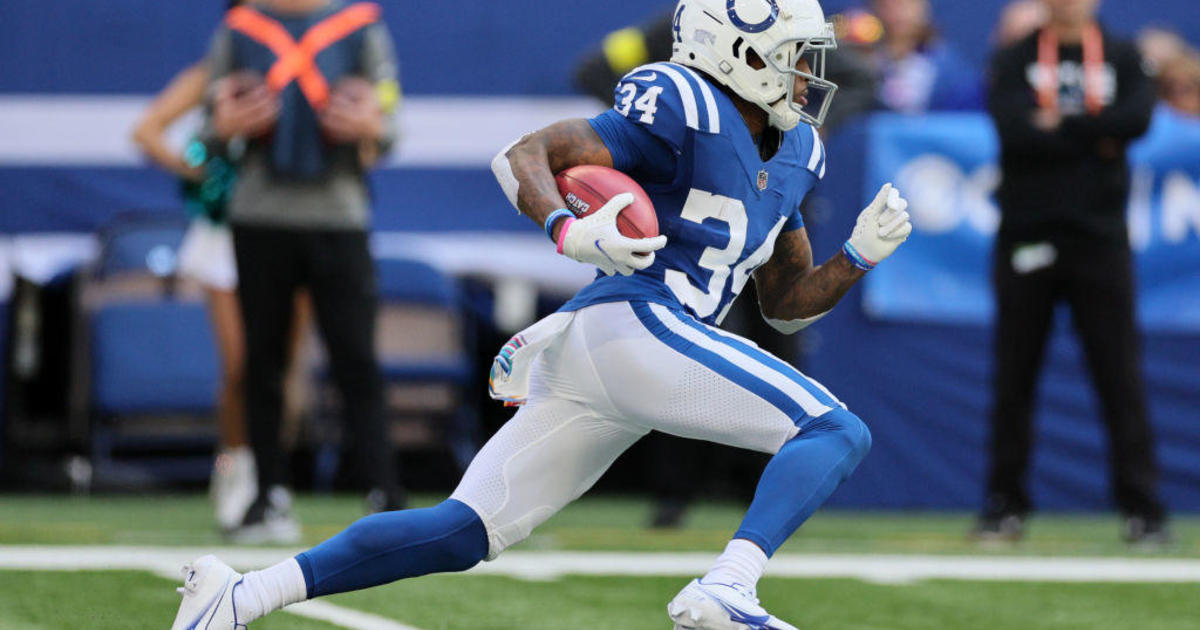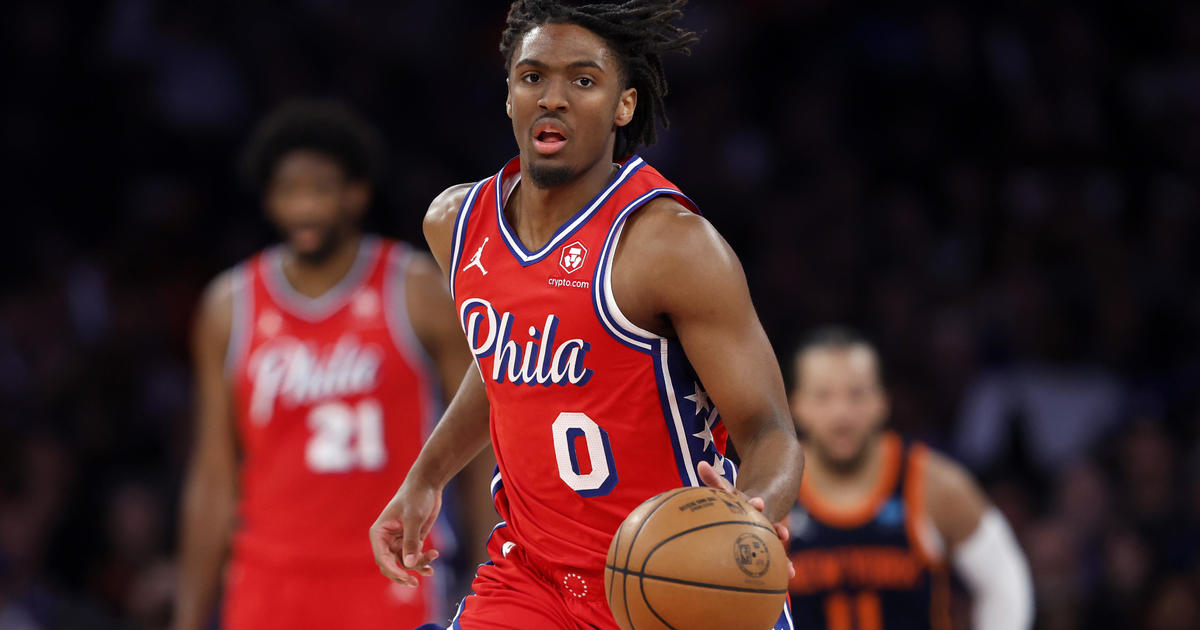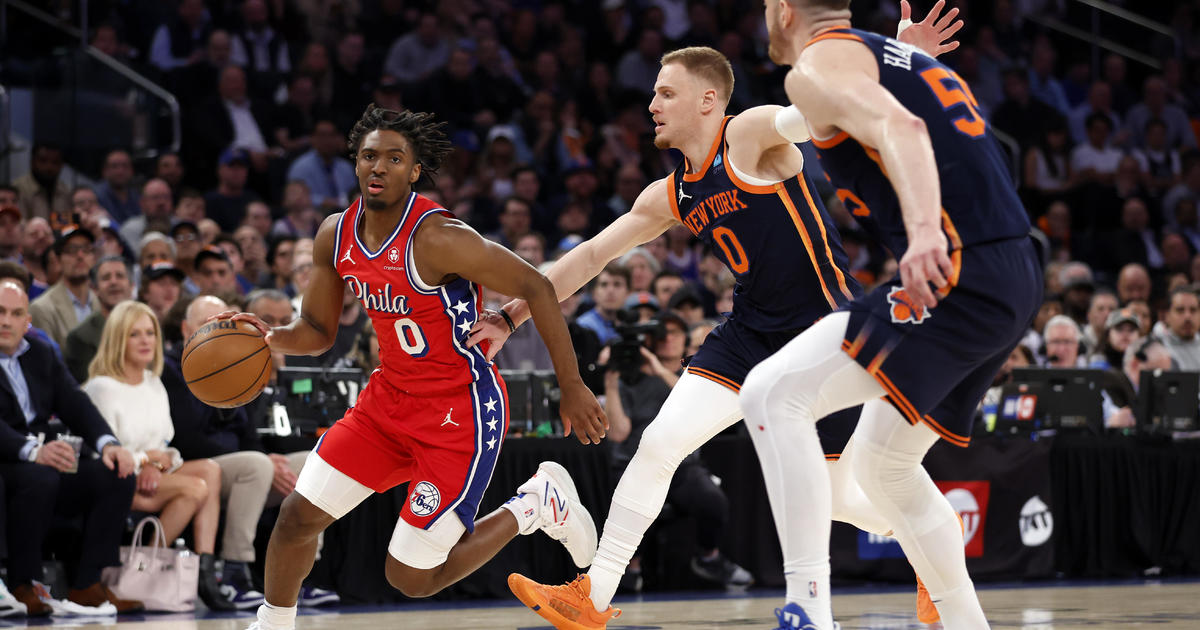John Schriffen: There Is Legitimately Nothing Like Army-Navy
The annual Army-Navy football game is one of college football's greatest traditions, stretching back to the late 1800's. In recent years, following the trend of the rest of the college football world, the teams have put together specialized jerseys for their annual meeting. This year is no different. Yesterday, the Midshipmen released their threads for December's game, and they are, in a word, fire.
Army hasn't released their uniforms yet, but if the past few years are any indication, they'll be bringing their best as well. While the game is still a few months away, it was a topic of conversation when we caught up with CBS Sports Network sideline reporter John Schriffen. As he prepares to be on the sidelines for this weekend's San Diego State-San Jose State game (10:30 p.m. ET CBS Sports Network), we caught up with Schriffen to discuss his career, favorite atmospheres (hint: one of the service academies is involved), the most difficult part of being a sideline reporter and more. (Editor's note: The following conversation has been lightly edited for brevity and clarity)
CBS Local Sports: You got your start in broadcasting in college after your baseball career was hampered by an injury, was it always the plan to stay in sports? Or what drew you to the broadcasting side of things?
John Schriffen: No, not at all. Going into college, I had no idea what I wanted to do. But, my mom always told me: 'Yes, you're an athlete now, but you're always going to need your education because you never know what's going to happen.' Of course, my mom is always going to be right (laughs) and my freshman year I got hurt.
I was a pitcher and I threw out my arm basically right away. It was diagnosed as tendinitis at first so I spent the whole year rehabbing and trying to get back before getting a second opinion. That's when they found a tear and said I needed Tommy John surgery. At that point, to get the surgery, rehab and come back, I wouldn't have been back on the field before my junior year and since I knew I wasn't of the level to be going pro, I decided I needed to figure out what's next.
I had a buddy that worked for the radio station and he convinced me to get in the booth and try calling the games with him since I knew the team and it could possibly be a good way to stay close to the team. As soon as I got in the booth I realized, this is the closest I'm going to get to the field ever again. And I loved it. I felt like I was still a part of the action, still a part of the game and I just started calling more sports.
The toughest part for any athlete is deciding it's time to hang it up and not play. But, being close to the sideline and close to the action, is what gets me coming back every single game and that's why I love my job.
CBS Local Sports: You mention being close to the sideline and that's where you are for these CBS broadcasts covering college football and basketball across the country. What's the best stadium atmosphere you've been in?
John Schriffen: Well, obviously, when you cover SEC football any of those schools always have packed houses and it's always rocking. But, I think of the lesser-known ones that I always enjoy going to, it has to be Army. Michie Stadium on a Saturday afternoon for college football is one of the best atmospheres in the entire country. You have the fly-over, the pageantry, the military. It's just so much history up there that I always tell people, if you have to see one football stadium in the country, you have to go to Michie Stadium on a Saturday afternoon.
As far as college basketball, I think Wichita State. They have a really cool atmosphere there because it's a very intimate arena, but the fans always pack it. It's tough to get a ticket because it's always sold out, it's always a loud crowd and it's always a fun time going there.
 Credit: Ron Antonelli/Getty Images
Credit: Ron Antonelli/Getty Images
CBS Local Sports: So, with Michie being one of your top stadiums, I'm curious. You've covered the Army-Navy game for CBS for the past several years, is there a particular one that stands out? Or is it just the game itself, standing alone on that final weekend of the college football regular season?
John Schriffen: There is legitimately nothing like an Army-Navy game. It is one of the best games in all of sports simply because no matter what side you're on, you feel the passion of both sides. The game that probably sticks out the most though was one I wasn't working, I was just there for the game three years ago in Philadelphia. Navy won that game, but it was so close (21-17). What made it so special is it was in the middle of that streak of Navy winning 14 matchups in a row and Army was just coming back and they got so close and you could tell they were on the cusp.
The Army-Navy game is one of those games where no matter what happens during their season, if you win that game, you have a great season. When you realize how important the game is in that way and then realize that after that game, all of those young men are going to go off and serve this country? You just have to have so much respect and compassion and just love everything that the game stands for.
CBS Local Sports: What would you say is the most difficult part of the sideline reporter's job?
John Schriffen: The most difficult part is when you prepare for a game you come up with so many different interesting stories, nuggets and bits of information that you think you can add to the broadcast, but you have to figure out when you get it into the game. When you have a great game, you really don't want to get on the air much because at the end of the day, your job is just to enhance the broadcast. When the game is incredible, you just want to lay back and let fans enjoy the game.
Obviously you want to get in when there's an injury or some story that's important to the game. But, as far as human interest stories, those really come in when there's a lull in the action or there's more of a blowout. The timing is the hardest part of the job. That's what the veteran sideline reporters do best. I've talked to Tracy Wolfson about it a lot and she always tells me 'know your spots. Make sure you're an asset to the broadcast and not just getting in so that your face is on TV.'
CBS Local Sports: From your perspective on the sidelines which coaches stand out as the easiest to work with for the half-time interviews which can always be tough?
John Schriffen: You have to have a relationship with coaches in order to get really good stuff out of them. I understand that. Once you work a few games with coaches and they see how professional you are and see that you're not going to burn them with information they give you, they open up a bit.
We have production meetings with all of the coaches the day before the game. And, if we have a good relationship with them, they'll give us information that could definitely impact the game if somebody finds out, but we don't release it until game time because it's for in-game broadcast only. When they trust us with that information, I will get better stuff from them during half-time interviews or before games, or post-game stuff.
The coaches that I have worked with a lot are the ones that tend to give me the best stuff. Jeff Monken at Army for example. He is fantastic. I've worked with him for three seasons and we have a good rhythm with each other. He knows where to find me, I know where he's going to be and even if he's going off at the half and trying to get clarification on a call, I know he's not going to run past me into the tunnel.
Another guy is PJ Fleck at Minnesota. I covered him a bunch when he was at Western Michigan and the guy is just a master motivator. When I would talk to him at half-time, he would always give me a good nugget or something I could use on the broadcast. Something fun we did with PJ Fleck was, I did an interview with him, in-game, during a play. He would call the play and then as the play was run, when something broke down, he would tell me where the break down happened and how he was going to fix it on the next play. This is a guy that's always trying to push the envelope with his team and with the broadcast. So, when a guy understands our job and he knows I respect his job, we have a better relationship and I get better information.



